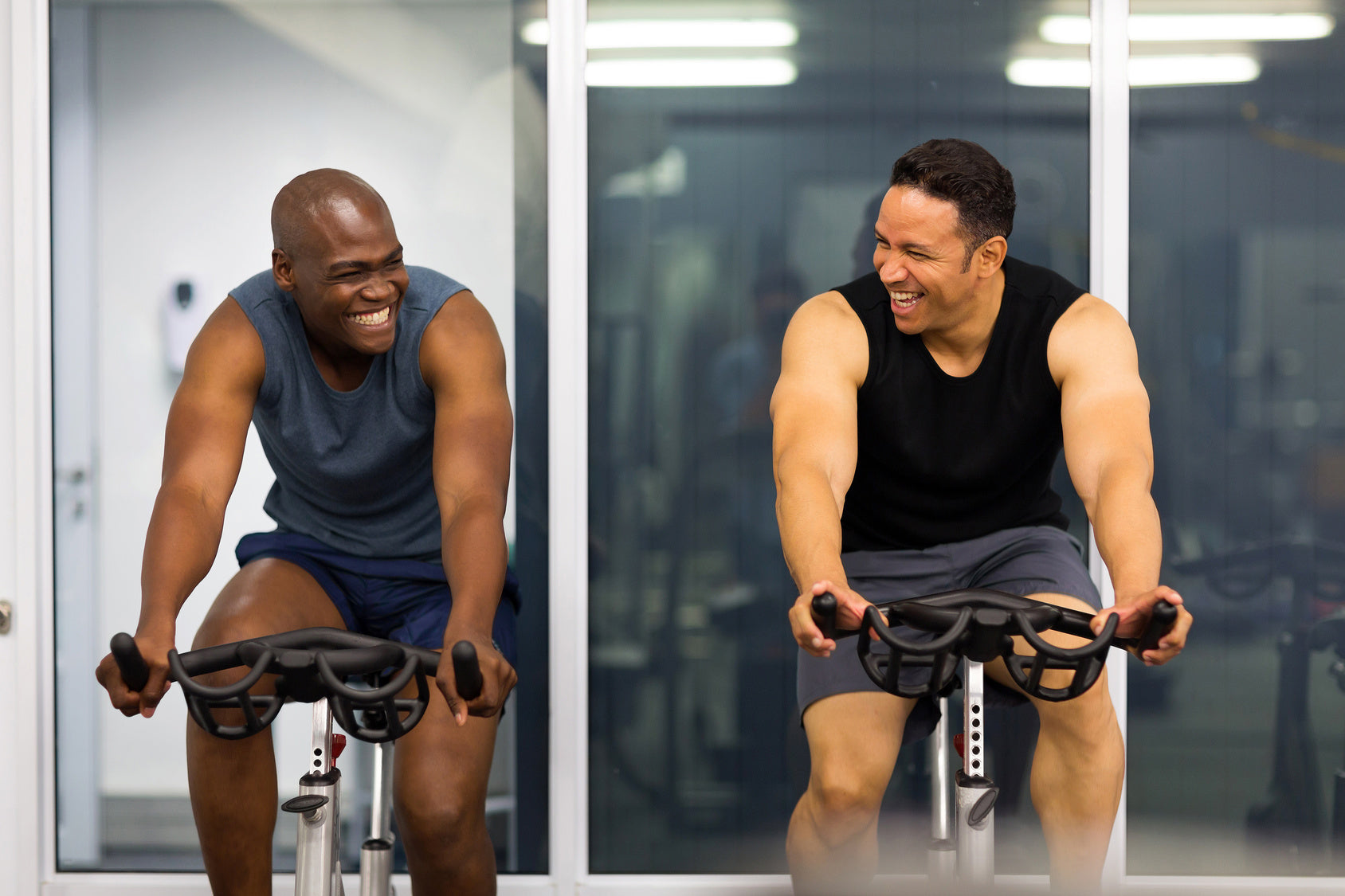
Ever get to the gym and realize you forgot your headphones at home? For some, it's enough to make you turn around and get them, or just splurge on a backup pair. Exercising without your own music might seem unfathomable – and researchers have postulated several reasons for why this might be so.
Distraction – Music can enhance your workout by taking your mind off the physical strain of working out. It's been shown that distractions take our focus away from the perception of pain – that's why combat soldiers sometimes don't know they've been shot right away, until the commotion of the fight has died down.
Pain Relief – Listening to music releases mood-enhancing hormones such as dopamine and opioids, making you feel good. These hormones are known to raise the pain threshold, so you'll endure more in your workout.
Synchronizing with the Beat – At the right tempo, music can help your body move in concert with the beat. Music stimulates the part of your brain that controls movement. It helps your muscles continually move, and it helps them move more efficiently. Thus, you maximize your workout, and this in turn can increase your health and life expectancy.1 Specifically, upbeat music can:
- Increase your heart rate
- Reduce your blood pressure
- Increase metabolism and energy efficiency
- Reduce physical and mental stress
- Diminish feelings of fatigue2
However, it has to be a specific kind of music. You could have two songs with the same beats per minute (BPM) – in other words, the same tempo – but they could produce different outcomes in your physical activity. Music that is more associated with “pop-techno” will produce higher physical output than music with a jazz or reggae feel, even if they're the same tempo.3 Music that's too fast, however, is not likely to have a positive effect on your workout, either. Experts seem to agree that the ideal range of beats per minute is 120–140; that's where you'll get maximum results. Anything above that, and the benefits are not as evident.
However, for activities that are a little slower or relaxed, such as yoga, you might want to opt for something a little more down-tempo and which matches the heart rate you wish to achieve during your workout.
Improving Your Mood – It's well known that music enhances your mood, but studies have borne this out empirically. Social scientists have shown that music helps people think about who they are, who they want to be, and how to follow their own path to get there.4 Music allows you to shed negative habits of thought and get in a positive, cheerful mood – the perfect mindset for getting ready for a workout. In addition to picking the right music, choosing the right nutrition to accompany your workout is crucial.
You'll want to replenish your body and give yourself the nutrients you need to repair tissue, build muscle, and rebound for the next time. View our large selection of protein bars, gluten-free bars, and other healthy energy bars. Paired with the perfect workout playlist, these will help you achieve optimal results, and you'll feel great, too.
Sources
